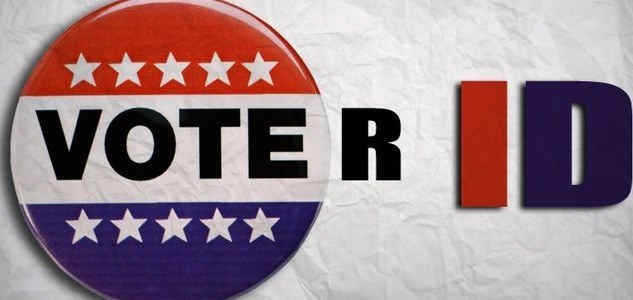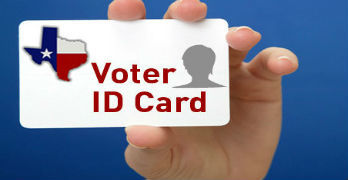
As federal court panels around the country have moved to invalidate restrictive voter ID laws in several states, the Obama campaign has an excellent opportunity to invigorate the base ahead of the presidential election in November. The hysteria surrounding Obama’s historic election in 2008 is a remnant of the past, replaced four years later by concerns over the economy and high unemployment. While it remains to be seen whether Obama can overcome the hurdle posed by the current unemployment rate—no president since FDR has won re-election with unemployment above 7.2 percent—Republican efforts across the country to introduce restrictive voter ID laws may well play into Obama’s hands.
 In a campaign where both parties have been responsible for perpetuating the “class warfare” storyline – who can forget Vice President Biden’s chain gang gaffe—the Republicans have played their part in championing a wave of voter ID laws that impact disproportionately upon socioeconomic disadvantaged voters who traditionally vote for the Democrats.
In a campaign where both parties have been responsible for perpetuating the “class warfare” storyline – who can forget Vice President Biden’s chain gang gaffe—the Republicans have played their part in championing a wave of voter ID laws that impact disproportionately upon socioeconomic disadvantaged voters who traditionally vote for the Democrats.
The Democratic National Convention, in Charlotte, was as predictable an affair as that held by their Republican counterparts—save for Clint Eastwood’s performance. However, what the RNC did show is that, amid the “We built it!” theme of personal responsibility, many key Republican figures are failing to see beyond this individualistic rhetoric. Indicative of this was the speech of South Carolina Governor Nikki Haley. Her remarks are illustrative of both the misguided Republican message that underscores the proposed voter ID laws as well as the extent of social disconnect of the politicians championing such laws.
The Republican rationale in favor of enhanced voter ID laws is that they are designed to prevent fraud. Conversely, Democrats argue that voter ID laws undermine voter access to the polls and compromise constitutionally protected voting rights.
While these positions are obvious on their face, Haley’s assertion at the RNC that “ if you have to show a picture ID to buy Sudafed, if you have to show a picture ID to set foot on an airplane, then you should have to show picture ID to protect one of the most valuable, most central, sacred rights we are blessed with in America — the right to vote” muddies the water.
Amid the rousing reception Haley received for this comment, she almost spun an agreeable argument. What Haley did was invoke the protection of rights rhetoric that is basis of the Democrats argument and in doing so highlighted flaws in the Republican rationale. There is no denying the importance of protecting the right to vote, but introducing an obligation to show ID will in fact erode this fundamental right to vote.
Furthermore, Haley’s remarks are reflective of the prevailing social disconnect in America today—what Michael Sandel referred to as the “skyboxification” of American society. Haley’s remarks comparing plane travel to voting highlight the negative implications of skyboxification on political reasoning. This comparison is a confusing one, trivializing the act of voting and oversimplifying the process of acquiring a valid ID. A more apt comparison between voting and plane travel would have been to suggest that, like your experience at the airport, the introduction of voter ID laws will subject you to additional burdens and in doing so will curtail your rights (can’t you just picture the standard issue TSA full body scanners at polling booths!)
The reference to plane travel is an attempt to rationalize the proposed laws in the minds of the RNC audience and glosses over the reality that plane travel remains an unattainable luxury in the lives of many of the voters who are the target of the proposed laws. A report released by the Center on Budget and Policy Priorities in October 2011 concluded that South Carolina was one of five states to cut Temporary Assistance for Needy Families (TANF) funding for welfare recipients and that the current benefit for a family of three is equal to 14 percent of the federal poverty line.
This financial reality in Haley’s own state undermines the simplicity of the rationale offered in support of voter ID laws. Continuing on the topic of plane travel, Sandel argues that the presence of shorter lines at the airport is reflective of the growing social disconnect. In light of Haley’s assumptions regarding the universality of air travel, it might be beneficial to insert a third and forgotten line in Sandel’s airport equation: those that are left out in the cold without a ticket at all. The introduction of voter ID laws enhances the risk of developing a similarly two tiered outcome is real and, given the fundamental rights at stake, deeply concerning.
As federal court panels across the country—from Texas to Ohio, with a decision on South Carolina’s laws still pending—move to strike down restrictive voter ID laws, Obama has been presented with a golden opportunity. By leveraging the judicial roadblock established regarding the voter ID laws in several states, Obama can champion a message of inclusiveness and issue a call to arms in that could in fact entice more people to vote and rekindle the 2008 enthusiasm that carried him to the White House.
Leave a Reply